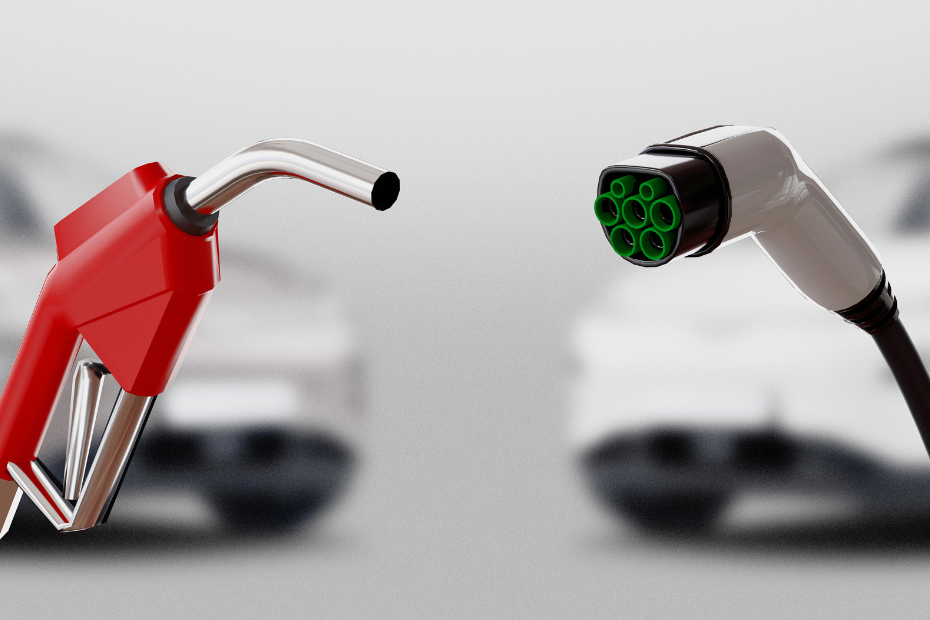Published March 17, 2023 • 5 Min Read
Electric vehicles (EVs) have come a long way since 2011 when they first became available on the Canadian market. When they initially appeared, they were an interesting curiosity, but it took some time for their uptake to gain momentum. Now, EVs are an everyday sight in communities across the country, with around 200,000 battery-electric and plug-in hybrid vehicles on the road.
Electric vehicles are a growing market in Canada
That number is set to increase, thanks to the Canadian government’s mandate that, by 2026, at least 20 per cent of all new cars sold must be zero-emission vehicles and at least 60 per cent by 2030. Fast-forward to 2035, and you may be hard-pressed to find many gas-powered vehicles on a dealership lot.
The rapid adoption of EVs isn’t just a result of government policy. Drivers are increasingly aware that passenger vehicles are one of the largest sources of greenhouse gas emissions in Canada. And given rising gas prices, EVs may seem like a smarter financial choice. They could be a win-win for you and the earth.
7 questions to ask before buying an electric car
1. Are electric vehicles better for the environment?
Electric vehicles often come up when the conversation turns to climate change. And that’s logical because one of the biggest advantages of fully-electric vehicles is that they produce zero tailpipe emissions. Compare that to your traditional internal combustion engine vehicle (ICEV), which, according to The Canada Energy Regulator, carbon dioxide makes up 95% to 99% of total vehicle GHG emissions.
But a couple of lesser-known carbon costs to owning and driving an EV are worth considering.
-
An EV’s energy has to come from somewhere, and a portion of most electric grids continue to be powered at least in part by fossil fuels, such as coal and natural gas. That means, in most cases, there will be some related emissions when you charge an EV.
-
Similarly, hybrid vehicles are powered by a combination of gas and electricity, so you can expect some emissions every time you fill the tank.
-
Lithium-ion battery production is another consideration. An energy-intensive process, the manufacturing of these batteries typically results in higher emissions than the manufacturing of an entire ICEV, according to a report by MIT.
Nevertheless, EVs remain a less carbon-intensive choice overall. Over time, the carbon costs of EV manufacturing are offset by their long-term energy efficiency. And that’s good news for buyers. According to the European Environment Agency, the carbon emissions from cars powered by electricity are still up to 30 percent lower than those from gas-powered cars—even once production and electricity generation is factored in.
2. How do EVs perform compared to gas-powered cars?
If you’re worried about EVs’ handling, power and performance, rest assured that technology has come a long way since EVs first became available over a decade ago. Today, there is a wide (and growing) variety of EV models for sale in Canada, ranging from sports cars to family-friendly SUVs.
The only real difference in performance that new EV owners tend to notice? The ride is a lot quieter than it used to be.
3. How far can an EV travel on a typical charge?
Most EVs can travel at least 450 kilometres on a single charge, which is more than enough to cover the average Canadian worker’s average commute of 57 kilometres one way.
4. Can an EV handle Canadian winters?
The Canadian Automobile Association says yes. There’s a catch, though, and that’s Canada’s harshest winters. EVs don’t have an engine producing heat, so they rely on the battery. This may mean your battery depletes more quickly when the heat is on.
5. How long does it take to charge an EV?
This depends entirely on the battery and the charging point.
-
With a standard 120-volt power outlet, you’ll get a full charge — you may wait more than 12 hours.
-
A 240-volt, or Level 2, charging unit takes six to 12 hours.
-
A Level 3, or DC Fast, charger — like those found at public charging stations — can get you back on the road in less than an hour.
6. Are charging stations easy to find in Canada?
Canada’s rapidly expanding EV charging station networks make it easier to charge on the go, including those operated by Petro-Canada, Tesla and Electrify Canada.
Around 15,000 public or semi-private Level 3, or DC Fast, chargers are available across the country, reaching as far north as Dawson City, Yukon. And there are plans for an additional 65,000 to be built over the next four years.
7. Are EVs more expensive than gas vehicles?
While the upfront costs of purchasing an EV are currently higher, in the long run, it will cost you considerably less to run than a traditional gas-powered car.
-
Fuel costs: While the cost of charging an EV at home varies by location, comparing electricity per kilometre to gasoline, electricity is considerably less. Over time, that savings can add up.
-
Maintenance: The cost of electric vehicle maintenance is about 70 per cent lower than that for comparable ICE vehicles, according to a report by the Canada Energy Regulator.
-
Repair: Because of the technical expertise needed, EVs may cost more to repair than their gasoline counterparts. But this may change as EVs become the industry standard and more mechanics are trained to work on them.
Read more: Is now the right time to buy an EV?
This article is intended as general information only and is not to be relied upon as constituting legal, financial or other professional advice. A professional advisor should be consulted regarding your specific situation. Information presented is believed to be factual and up-to-date but we do not guarantee its accuracy and it should not be regarded as a complete analysis of the subjects discussed. All expressions of opinion reflect the judgment of the authors as of the date of publication and are subject to change. No endorsement of any third parties or their advice, opinions, information, products or services is expressly given or implied by Royal Bank of Canada or any of its affiliates.
Share This Article






